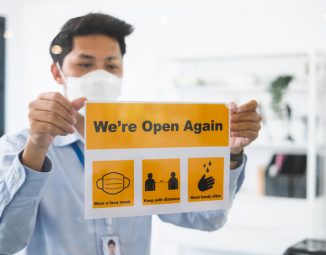What Should an Employer Do When It Suspects an Employee of Intermittent FMLA Abuse?
Employers, does this situation sound all too familiar: that one little elf who has been approved for intermittent FMLA leave and the condition seems to “flare up” at the most suspect times (every Monday and Friday; after a disagreement with a supervisor; or after being assigned to clean out Prancer’s stall). It’s obvious to you and Mrs. Claus what is going on here, but as the employer, you need to tread lightly when you suspect an employee of FMLA abuse. However, there is reason to be merry and bright: there is some recourse for weary employers who suspect their Santa’s Little Helpers of abusing the FMLA. The following tips will ensure that an employee is not making a reindeer game out of your FMLA policy.
Can I request certification for each flare-up? No, unless…
Generally, an employer cannot request a recertification of a medical condition more often than every six (6) months. Where the employee’s medical certification indicates that the employee will need intermittent leave for a period in excess of six months (i.e., for a lifetime condition), you may request recertification every six months in connection with the absence. There are, however, circumstances in which you may request recertification more frequently:
- Circumstances described by the previous certification have changed significantly (i.e., the duration or frequency of the absence or suspicious timing). For example, changes in frequency of absences would include the situation where a medical certification stated that an employee would need leave for two days when the employee suffered a migraine headache, but the employee’s absences for his last two migraines lasted four days each. Likewise, suspicious timing would include an employee’s pattern of using unscheduled FMLA leave for migraines in conjunction with weekends or his scheduled days off; or
- You receive information that casts doubt upon the employee’s stated reason for the absence or the continuing validity of the certification. For example, if an employee is on FMLA leave for four weeks due to the employee’s knee surgery, including recuperation, and the employee is seen doing triple axles at the Rockefeller Center ice rink during the second week of FMLA leave, such information might be sufficient to cast doubt upon the continuing validity of the certification – allowing you to request a recertification.
As part of the information allowed to be obtained on recertification, you may provide the health care provider with a record of the employee’s absence pattern and ask the health care provider if the serious health condition and need for leave is consistent with such a pattern. The employer may ask the health care provider if the absence pattern comports with the medical condition for which the FMLA is needed. Even better news: any recertification is at the employee’s expense.
May I require an employee to call-out for each FMLA-related absence?
When the need for leave is not foreseeable, an employee must comply with the employer’s usual and customary notice and procedural requirements for requesting leave. For example, you may require employees to call a designated number or a specific individual to request leave. If an employee does not comply with your usual notice and procedural requirements, and no unusual circumstances justify the failure to comply, FMLA-protected leave may be delayed or denied.
What are my options when I suspect employee abuse of FMLA leave?
Annual medical certification: You can wait out the year and require the employee to provide a new medical certification in each subsequent leave year. If you go through the entire certification process for subsequent years (including authentication, clarification, second and third opinions), you could deny FMLA. This entails waiting it out, however, until the next year.
Authentication of medical certification: You may contact the health care provider for purposes of authentication. “Authentication” means providing the health care provider with a copy of the certification and requesting verification that the information contained on the certification form was actually completed and/or authorized by the health care provider who signed the document; no additional medical information may be requested. You must use a health care provider, human resources professional, leave administrator, or management official to seek authentication. Under no circumstances may the employee’s direct supervisor contact the employee’s health care provider.
You should NOT use this authentication process to deny leave already granted, but rather, in support of its request for recertification. Authentication, clarification, second and third opinions are not available to employers who have already granted the leave.
Recertification for leave taken: Circumstances described by the previous certification have changed significantly (i.e., the duration or frequency of the absence); and/or you receive information that casts doubt upon the employee’s stated reason for the absence or the continuing validity of the certification.
Failure to provide certification/recertification: If an employee fails to provide a recertification within a reasonable time under the particular facts and circumstances, then the employer may deny continuation of the FMLA leave protections.



